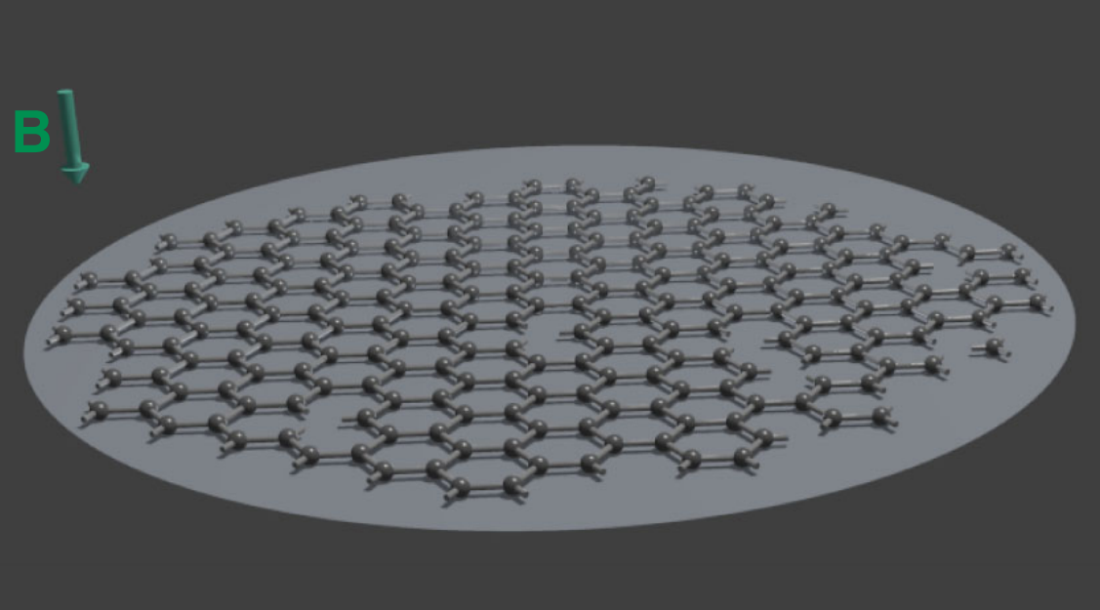
The AdS/CFT correspondence refers to the duality between gravitational theories in the d-dimensional AdS spacetime and
conformal field theories on the (d-1)-dimensional asymptotic boundary. The Sachdev-Ye-Kitaev (SYK) model is an exactly solvable example
of the AdS/CFT correspondence. It describes a group of Majorana (or complex) fermions with random all-to-all
interactions, which can be shown to exhibit an emergent (0+1)-dimensional CFT dual to a
black hole in AdS1+1.
In this work, we propose to experimentally realize the SYK model
in a mesoscopic graphene flake with an irregular boundary, using a strong perpendicular magnetic field
to form Dirac Landau levels. In particular, the zeroth Landau level is highly degenerate and protected by the chiral symmetry,
with the number of zero modes proportional to the total flux. The zero-mode wavefunctions have random spatial distributions
due to the irregular boundary. When Coulomb repulsion is projected onto these disordered zero modes,
pairwise interactions with random interaction strengths are generated. This group of confined, interacting zero modes thus realize
the SYK model. We further conduct numerical simulations to reproduce known SYK signatures.

